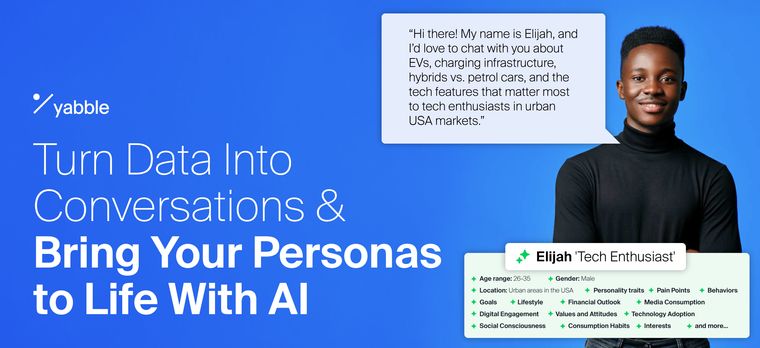Navigating Gen Z Research: Strategies and Considerations
To effectively gather insights from Generation Z, researchers must embrace innovative methodologies and nuanced approaches that reflect the diverse perspectives and behaviors of this unique cohort.

Gen Z is inspiring us to adopt new market research approaches. To understand what’s working and what’s not for Gen Z market research, AMC Global chatted with some companies who are working with the Gen Z market, including industry leaders running studies with this diverse and individualistic group. We revealed some common themes that can help us successfully gather insights with this generation, on its own or as a cohort within a broader research audience.
To structure successful studies with Gen Z, researchers need to take into account factors like advanced digital fluency, mobile-focused lives, and alternate recruitment methods. During the study itself, personalized engagement strategies and incentivization are key to capturing (and keeping) attention and fostering meaningful interactions. Once insights are gathered, interpreting findings requires a deep understanding of Gen Z’s perspectives and behaviors—avoiding assumptions and embracing diversity.
How Gen Z is Different
A major theme that emerged is that Gen Z are highly resistant to being arbitrarily categorized. According to PRRI, Gen Z is the most racially and ethnically diverse cohort in history. Additionally, Gen Z are significantly more likely to identify as part of the LGBTQ+ community.
When looking at this generation demographically, a good rule of thumb is don’t! According to the Insights Association's market research guidelines on race and ethnicity and on gender and sexual orientation, some respondents may be immediately alienated if forced to choose a single select in these categories or if you don’t offer the options they’re seeking. The risk of Gen Z respondents dropping out when encountering these questions makes it worth strongly considering whether or not you need this information.
Kayte Hamilton of The Social Question says, particularly of her non-white Gen Z participants, when asked race and ethnicity questions, “they are proud to check off more than one [option], they don’t want to fit into ONE box.” If you decide to keep asking these demographic questions, perhaps move them to the end of the survey where opting out will have less impact. Plus, ensure they are multi-select and have the option to self-describe.
Structuring Research Approaches for Gen Z
Rethink how you capture insights from Gen Z consumers! Some strategies include leveraging social media, mobile optimization, and using diverse methodologies such as asynchronous research and chat-based technologies.
Social Media is King
According to Forbes, there is no age group today that engages more with social media than Generation Z. Hamilton meets this generation in their own “digital playground” first—believing there’s a lot to discover via social intelligence. She has found that they are talking with others primarily through social platforms over in-person, phone or text conversations. Through social media, a researcher can go to where Gen Z is already, and connect with them in a way that feels familiar.
The Mobile Generation
The majority of Gen Z consumers participate in research via their mobile device (proven out in recent studies by AMC Global). When the mobile study isn’t seamless, or is too long, Gen Z respondents will drop. Mobile-centric user experience for engagement is vital, as well as utilizing insights into mobile usage patterns and preferences to help guide research approaches.
Changing up the Methodologies
While traditional research methods may work, researchers need to structure them in such a way to reach Gen Z with truly seamless, engaging survey experiences, possibly even in native apps. Lilah Raynor, CEO & Founder of Logica Research, recommends using images whenever possible. She also stresses the importance of considering approaches that allow you to interview via video but also leverage chat/texting at the same time, particularly if moderating multiple people simultaneously.
Also recommended is building in time for more open-end responses, for space to express themselves. Hamilton from The Social Question shares that: “we know this generation is… willing to talk about what makes them diverse. They are also more reflective and expressive.”
In fact, building in extra time for fielding is something that came up more than once during our interviews with Courtney Hocking from OpinionRoute saying “we do see this audience taking a little longer so allowing for a few more days of field time would definitely help!”
Compensation is Key
Our industry colleagues at MFour stress the importance of paying fair cash compensation and being clear about incentives for Gen Z respondents, with a process that will not alienate or frustrate them. As with all other interactions, incentivization needs to be seamless.
Even though this is a generation that older generations perceive to be very comfortable putting their thoughts and feelings into public spaces, they are well aware of their worth and have no concerns with dropping out if they don’t feel valued.
Segmentation: It’s Not the Same
Given Gen Zers reluctance to self-categorize (or even identify as part of a demographic cohort), segmenting Gen Z isn’t straight-forward. While researchers can segment somewhat based on age, education, and employment status, with Gen Z we need to go beyond traditional segmentation for nuanced insights that help guide business decisions for complex targets. Explore segments within the population based on attitudes, needs and preferences more likely to reflect behavior in the marketplace than demographic segmentation. With a generational cohort comprised of “individuals” it’s safe to say there are many segments within the age-based segment of Gen Z!
Interpreting Gen Z Findings The Right Way
Potentially the biggest mindset shift associated with researching Gen Z involves perspective-taking when interpreting insights gathered from this audience. Mfour shares that “since Gen Z has spent their entire lives with technology at their fingertips, their expectations of services, experiences, and products can differ. [This] is something that needs to be taken into consideration when evaluating motivations, drivers, and influences.”
While adapting to the perspective of Gen Z might seem intimidating, understanding your target audience is always worth the effort. Taking the time to recognize your own innate biases and truly learning how Gen Zers think, how to reach them, and how to understand what they’re saying will allow you to identify transformative insights and ultimately reach this generation, the right way.


